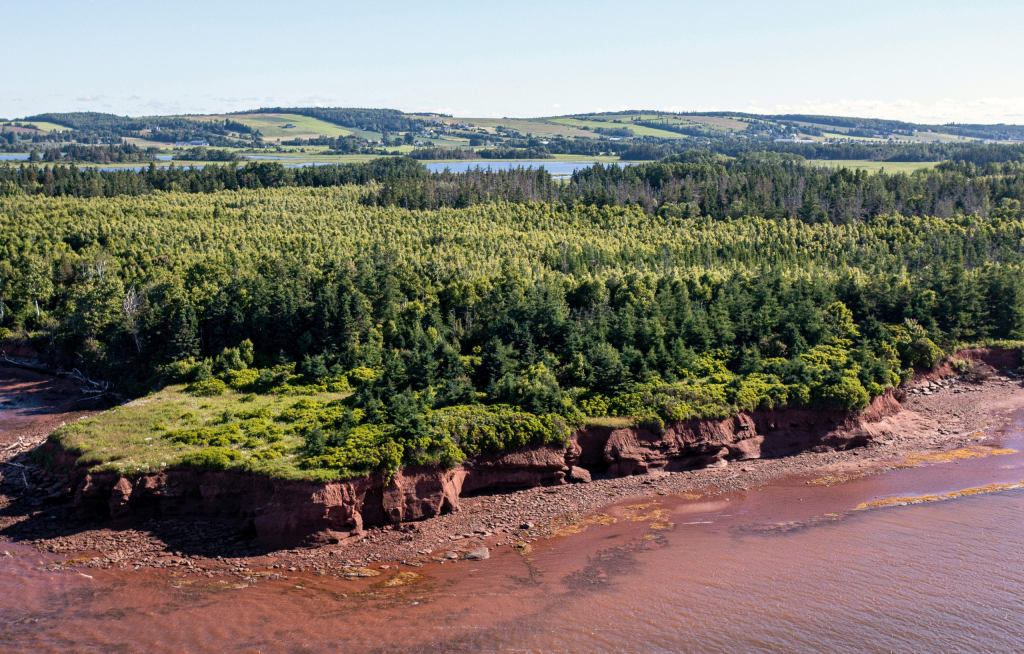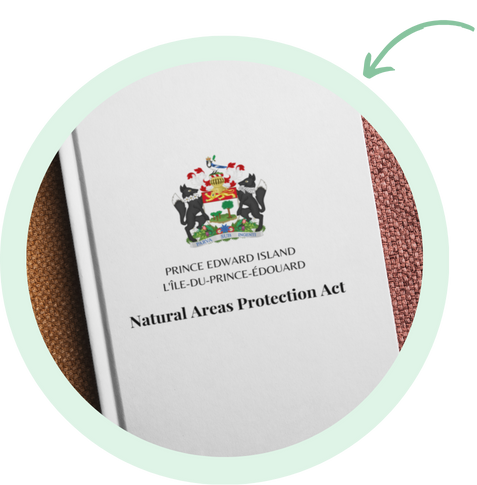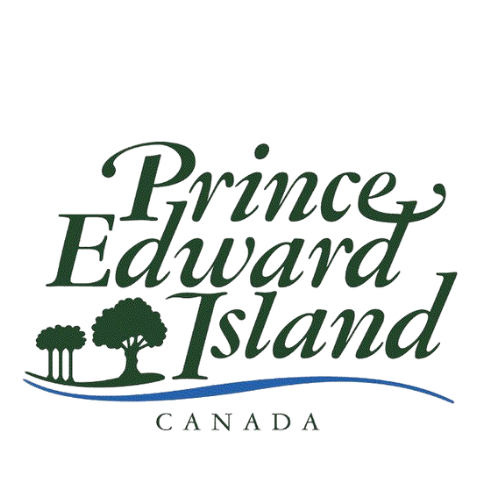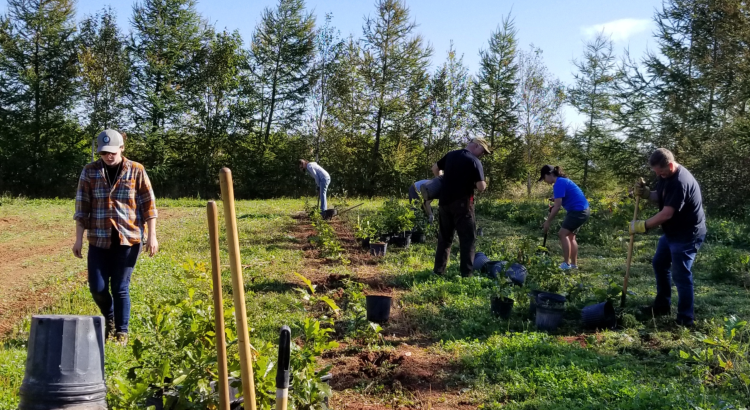While many may not have the opportunity to witness the seamless interplay between nature and human existence or comprehend the remarkable ecosystems thriving in natural areas, there are a significant number of individuals who share a profound connection with the natural world, within their own backyards. Island Nature Trust invites individuals who cherish the Island’s ecological treasures to play an integral role in preserving our natural environment.
For those who are eager to make a difference in the realm of land conservation and own land, private protection is a unique path to explore.

Prince Edward Island is known for its natural beauty, yet much of the landscape has witnessed the impacts of human activities, from forestry and agriculture to development where approximately 87% of its land is privately owned. INT recognizes the importance of collaborating with like-minded individuals who share a common goal: to safeguard as much of the Island’s remaining natural areas as possible. This endeavor is driven by a deep commitment to nurturing the Island’s ecological integrity for the benefit of both humans and wildlife, now and in the future.
For landowners who hold the ecological integrity of their property in high regard, private protection offers a unique opportunity to promote the perpetual naturalization of their land. The process of protecting land varies according to individual values and goals, and at INT, we are able to assist landowners with conservation of ecosystems and the promotion of naturalization through the PEI Natural Areas Protection Act (NAPA).
Under NAPA, a restrictive covenant serves as the guardian of the designated natural area, shielding it from development and regulating permissible activities. The strength of this protection lies in its permanence; once a natural area is designated under NAPA, the restrictive covenant cannot be removed by the landowner. This ensures that the property is preserved as a natural area for both present and future generations.
Considerations on the Path of Protection
When considering land protection through NAPA, it’s important to weigh the benefits and responsibilities. Some of the notable advantages include:

Permanent Protection:
Land designated under NAPA is safeguarded in perpetuity, ensuring its ecological integrity is preserved for the long term. The landowner cannot remove the designation, and the protection runs with the property – so all future landowners will be subject to NAPA restrictions.

Support for Biodiversity:
Protected areas under NAPA promote and maintain biodiversity, allowing native species to thrive and contributing to a healthy ecosystem.

Relief from Property Tax:
Land designated under NAPA is exempt from property taxes, offering financial relief to landowners.

The landowner has the flexibility to designate the entire property or only a portion. For landowners residing on their property, they can exclude their home, yard, and buildings from the designation. However, due to the permanent nature of this protection mechanism, it’s crucial to make an informed decision, understanding that, while you can sell a protected property in the future, its fair market value may be reduced due to the loss of development rights on the protected portion.
For those interested in exploring the avenue of formal protection through NAPA, INT is ready to provide additional information and guide you through the process, ensuring that your land’s protection aligns with your values and vision.
Exploring Alternatives to NAPA Protection
While formal protection through NAPA offers robust safeguards for your land, INT recognizes that it may not align with everyone’s goals or time constraints. For those with forested land that has been significantly impacted who wish to witness its naturalization, allowing nature to take its course without formal protection is a meaningful option. Consulting with organizations such as Macphail Woods to design a Forest Management Plan is another route. By registering for the Province of PEI’s Forest Enhancement Program, you can access financial support to create and implement a plan focused on sustainable forestry practices, helping your forested land to thrive and maintain its ecological value.
There are many other avenues for positive land stewardship without formal NAPA protection. For example:
- Embracing ecological silvicultural practices to reintroduce native species that characterizes the Island’s natural landscape.
- Removing invasive species from your land, creating space for native flora and fauna to flourish.
- Planting native trees and shrubs to enhance the ecological value of your property.
- Leaving snags (dead trees) in place to provide essential habitat for wildlife.
Your journey in land stewardship is a personal one. While formal protection through NAPA offers substantial safeguards, it has economic impacts and it’s equally important to explore alternative approaches that align with your values and vision for your land. Whether you choose private protection through NAPA or opt for hands-off land stewardship, your commitment to preserving Prince Edward Island’s natural beauty is invaluable. INT can help you with whatever path you choose!
As we look forward to the next magazine issue in February 2024, we invite you to explore our ‘Be a Guardian for Nature’ supporter segment, where we will delve into the myriad ways to actively support INT’s mission through hands-on conservation, volunteering, and participation in events. By becoming a guardian for nature through hands-on land stewardship, you will become a vital part of the effort to preserve Prince Edward Island’s unique ecosystems.
In addition, we will showcase individuals and their personal stories of private protection, highlighting their dedication to preserving the Island’s natural treasures and sharing their inspirational journeys. Together, we’ll continue to protect and celebrate the beauty and ecological significance of Prince Edward Island for generations to come.
For more information, contact Cassandra Stoddart our Private Stewardship Coordinator at cstoddart@islandnaturetrust.ca or call (902) 892-7513.



